Key takeaways:
- Understanding foot type, including arch and pronation, is crucial for selecting comfortable and supportive shoes.
- Identifying lifestyle needs helps determine the right shoe features for various activities, such as walking, hiking, and sports.
- Researching fit and comfort, including trying different sizes and assessing materials, significantly impacts overall footwear satisfaction.
- Evaluating shoe quality and durability, considering brand reputation and construction, leads to better long-term investments in footwear.
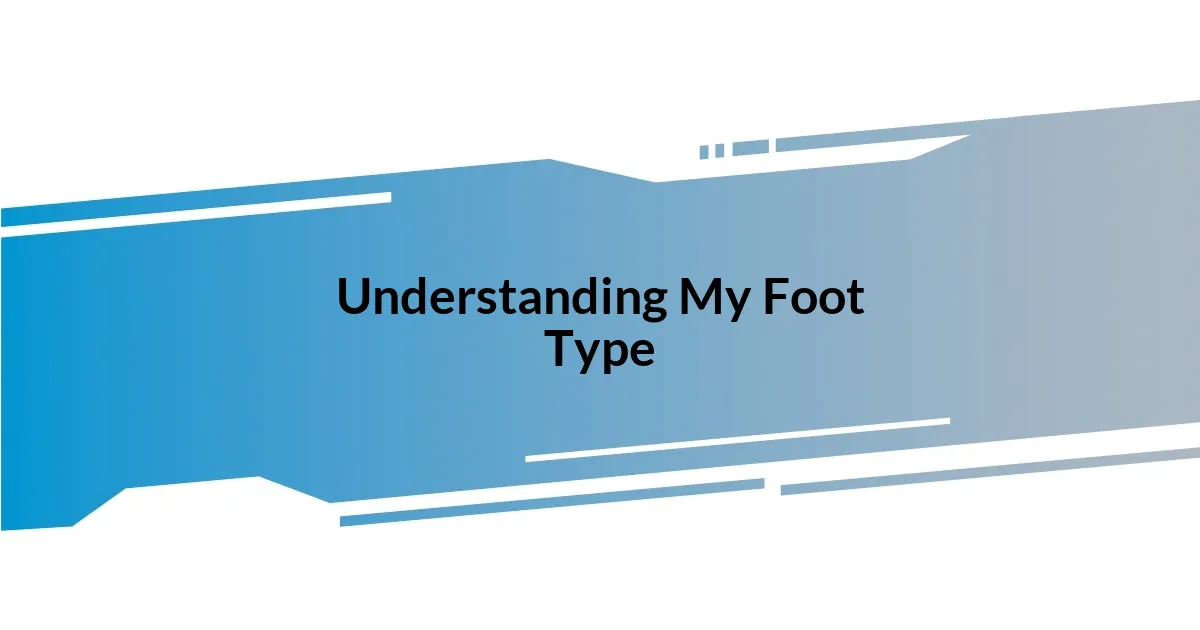
Understanding My Foot Type
Understanding my foot type was a revelation that changed how I approached buying shoes. For years, I struggled with discomfort, but I never really considered how crucial this aspect was. Did you know that there are different types of arches—low, neutral, and high? Once I discovered I had a high arch, it was like a light bulb moment.
I remember the first time I had my foot analyzed in a store—it felt a bit awkward, but it opened my eyes. Standing on that machine and seeing the pressure points really made me appreciate how unique my feet are. It’s fascinating how a small detail like the shape of your arch can affect comfort and performance in your shoes. Have you ever thought about how much you rely on your feet, yet rarely pay attention to their specific needs?
Diving deeper into the characteristics of my foot type, I learned about pronation—how my foot rolls upon landing. I realized that my natural tendency to overpronate was a significant factor in my shoe choices. Since changing to shoes designed for my foot type, I often wonder how much unnecessary pain I had endured before this journey began. Understanding my foot type hasn’t just improved my experience with shoes; it has transformed my overall confidence and well-being.

Identifying My Lifestyle Needs
Identifying the nuances of my lifestyle was essential in guiding my shoe selection. As an active person, I love going for long walks and hitting the gym, which meant I needed shoes that could keep up. One day, while out for a jog, I realized how my shoes affected my performance; I could either feel energized or drained after just a few miles. It made me think about how my daily activities influence my footwear needs.
During weekend hikes with friends, it became clear that I also required shoes that provided excellent grip and support. I recall a particularly muddy trail where my less-than-ideal shoes made me feel unsteady. That experience highlighted just how critical it is for me to have shoes catered to rough terrains. It dawned on me that my shoes should not only fit well but also match the specific activities I embrace on my weekends.
This realization pushed me to evaluate my choices thoroughly. I had to think about whether I needed shoes for leisure, work, or adventure. Often, I found myself gravitating towards a pair that looked great but didn’t offer the support I needed during an impromptu basketball game. Adopting a more informed perspective on my lifestyle needs emerged as a pivotal step in my journey toward finding the perfect shoes.
| Activity Type | Required Features |
|---|---|
| Walking/Jogging | Comfortable cushioning, arch support |
| Hiking | Traction, durability, ankle support |
| Casual Outings | Style, versatility |
| Playing Sports | Stability, responsiveness |
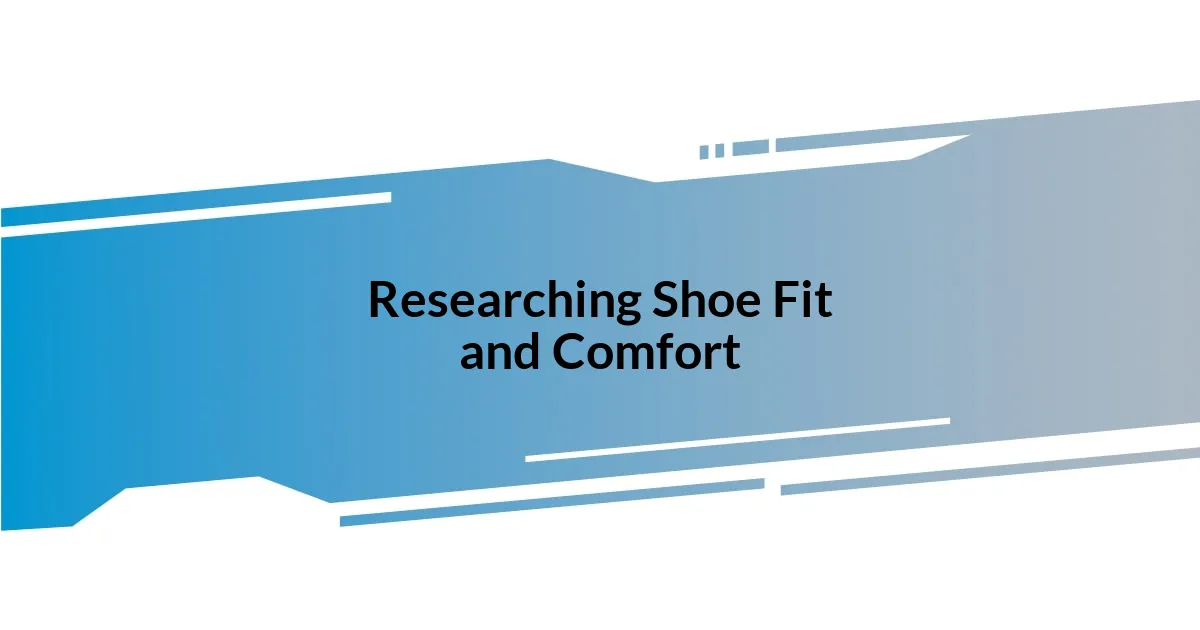
Researching Shoe Fit and Comfort
Researching Shoe Fit and Comfort
When I started researching shoe fit and comfort, the wealth of information available was a bit overwhelming but incredibly enlightening. I discovered that a snug fit is essential, especially around the heel and mid-foot, but there should still be room for your toes to wiggle. I remember going into a store and trying on multiple sizes; it was amazing to feel the difference a half-size made.
Here are some crucial factors to consider when assessing shoe fit and comfort:
– Toe Box Space: There should be about a thumb’s width between your longest toe and the end of the shoe.
– Arch Support: Shoes should support your arch type to prevent discomfort, particularly during extended wear.
– Heel Fit: Your heel should stay in place without slipping, which helps reduce blisters.
– Flexibility: Shoes should flex at the ball of your foot, allowing for natural movement.
– Material: Breathable materials can help avoid sweaty feet and enhance comfort throughout the day.
Digging deeper, I found that a good fit isn’t just about size—it’s about the shape of the shoe itself. The first time I wore a pair of shoes designed specifically for my high arches, it felt like I had discovered a secret weapon. I took them on a long walk, and instead of the usual aches I’d grown accustomed to, I felt an almost buoyant comfort. That experience reinforced the belief that investing time in understanding what’s comfortable for me is worth it.
Many people overlook the importance of trying shoes on in the afternoon when feet are naturally a bit swollen, as this can provide a more accurate fit. I learned that if a shoe feels too snug in the store, it’s probably not the one, no matter how stylish it looks. Choose comfort first—your feet will thank you later.
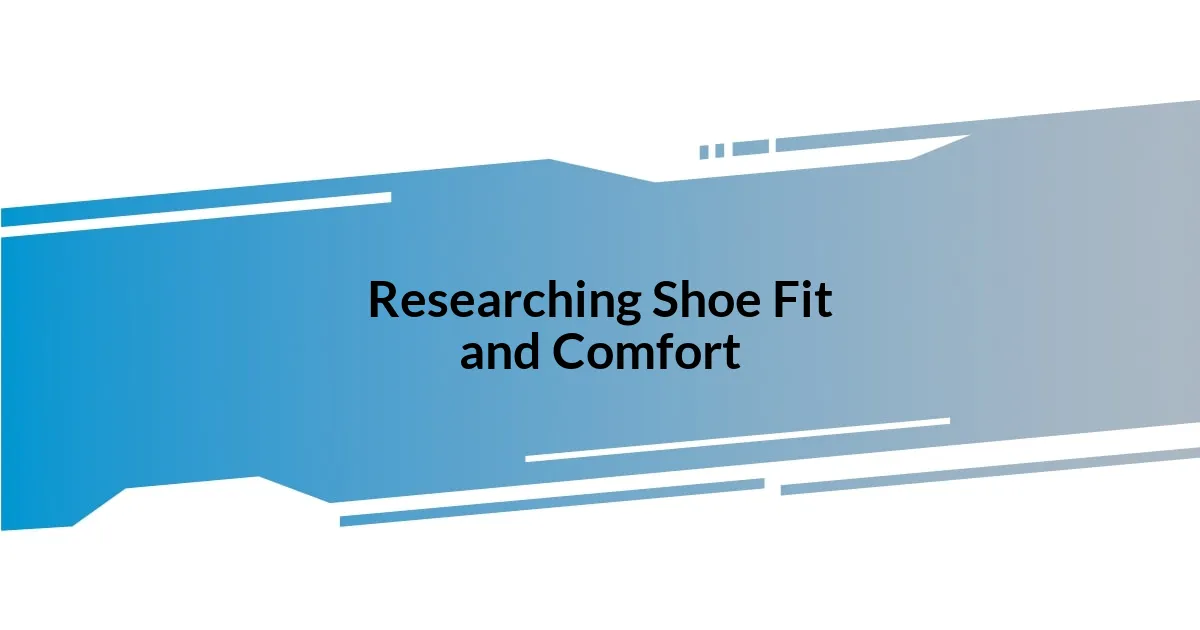
Exploring Different Shoe Styles
Exploring the vast world of shoe styles was more exciting than I had anticipated. I remember entering a store filled with vibrant sneakers, elegant loafers, and rugged boots, wondering where to even begin. Each style I tried on led me to think about not just how they looked, but how they would fit into my daily life. For instance, slipping into a pair of sleek dress shoes instantly transported me to images of important meetings, but I knew they wouldn’t support my weekend adventures—talk about a tough choice!
As I delved deeper, I discovered the beauty of multifunctional footwear. I once stumbled upon a pair of crossover shoes that seamlessly transitioned from the gym to casual outings. These shoes became my go-to—you know, the ones that can handle a spontaneous run followed by a night out with friends. Have you ever experienced that joyful realization when you find one pair that meets multiple needs? I cherished moments like those, as they represented not only practicality but also my evolving approach to choosing shoes that would accompany me on various adventures.
Then there were the sandals. Initially, I thought sandals were just for lounging around, but trying on a pair with arch support opened my eyes. The first time I wore them during a day trip with friends, I felt like I had unlocked a new level of comfort. It made me question, “Why hadn’t I embraced this style sooner?” Suddenly, I was picturing all the summer outings I could enjoy without sacrificing comfort. Shoes, I realized, weren’t just accessories—they were companions in my journey, each style revealing a bit more about what I value and need in my life.
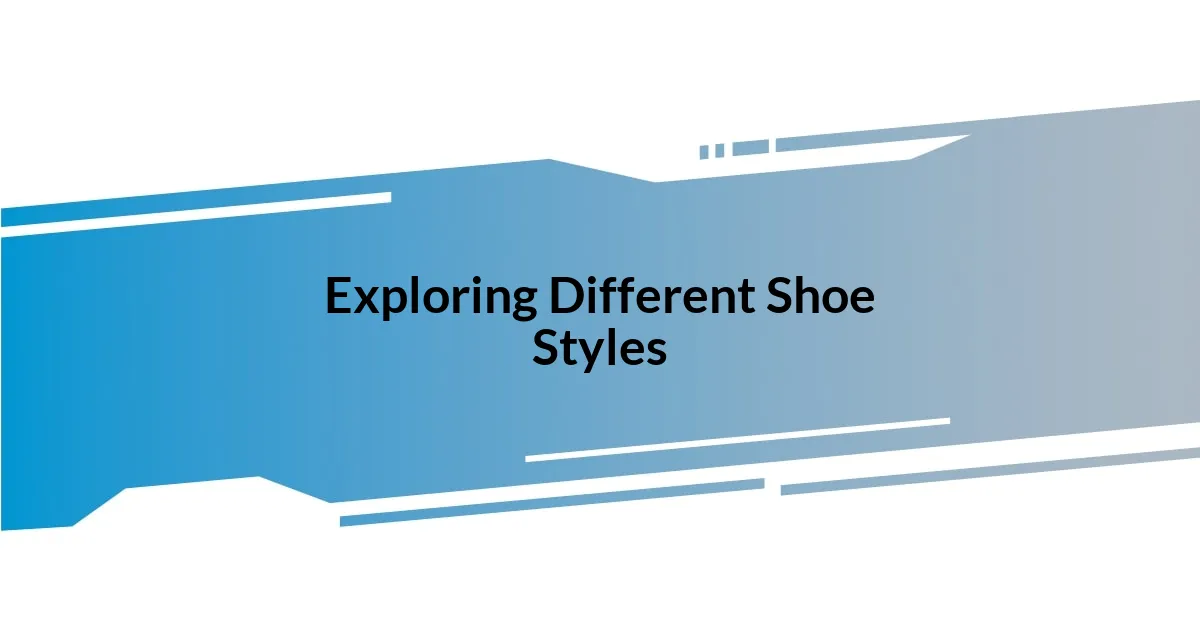
Trying on Shoes Effectively
There’s an art to trying on shoes effectively that I learned through experience. I often start by removing the shoe’s insole and standing on it, which helps me gauge the overall fit without the added bulk of the shoe itself. I found that this simple trick provided clarity on whether the shoe dimensions matched my foot shape.
While trying on shoes, I encourage you to walk around the store for a bit. I remember one time, I was hesitant about a pair of ankle boots until I took a few steps in them. Suddenly, I noticed how they hugged my ankle perfectly and didn’t rub anywhere. That little revelation made me realize the importance of taking the time to test not just for the right fit, but also for comfort while in motion.
Have you ever considered how your typical activities influence your shoe choices? I often think about the surfaces I’ll be walking on. For example, after trying on a pair of trainers designed for pavement running, I could feel the sole offering excellent support and cushioning. But when I switched to a pair targeted for trail running, the sturdier grip made all the difference. These experiences reinforced my belief that the shoes have to suit the lifestyle I lead.
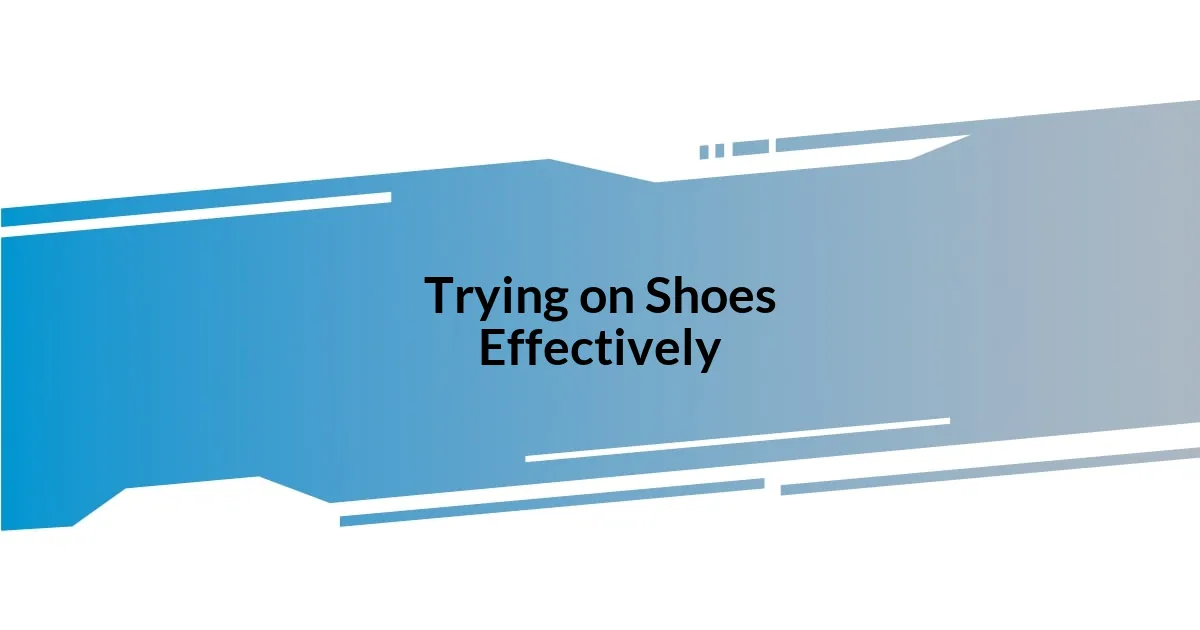
Evaluating Quality and Durability
When evaluating quality and durability in shoes, I always start by examining the materials. I remember purchasing a pair of leather boots that promised both style and strength. After a few months of consistent use, I noted how the leather softened beautifully without losing its shape. It was a satisfying reminder that investing in quality materials pays off in the long run.
Have you ever checked the stitching on a shoe? I used to overlook this detail, but a pair of sneakers I bought last summer highlighted its importance. The sturdy stitching held firm despite my high-impact workouts, while cheaper versions I had tried before unraveled within weeks. This experience taught me that well-stitched shoes are often a signal of better durability.
Another crucial aspect I consider is the brand’s reputation. I’ve found that established brands often offer warranties or guarantees, which speaks volumes about their confidence in the product’s longevity. When an outdoor brand provided a lifetime guarantee on their hiking shoes, I felt reassured about my investment. After all, doesn’t the prospect of reliable footwear enhance your adventures as much as the ones you wear them on?

Making the Final Choice
When I reached the moment of making my final choice, I experienced a mix of excitement and anxiety. I recall standing in the store, three pairs of shoes in front of me, each with its own unique appeal. It’s like stepping into a high-stakes game where the right move could drastically change my shoe game. How do you weigh options when everything seems perfect in its own way?
After mulling it over and recalling my previous experiences, I began to visualize the scenarios where I’d wear each pair. I once picked a beautiful pair of loafers that looked great but ended up uncomfortable during a long day at work. That taught me to consider not just style but also practicality. Which shoes not only elevate my outfits but also keep my feet happy throughout my busy day?
In the end, I learned that embracing the process contributes significantly to making the right decision. I often lean on insights from friends or family when finalizing choices. Do you ever seek advice? I remember a friend once nudging me toward sneakers that, at first glance, didn’t catch my eye. I tried them on, and they transformed how I felt about my whole wardrobe! Sometimes, a fresh perspective can lead to unexpected but delightful find.